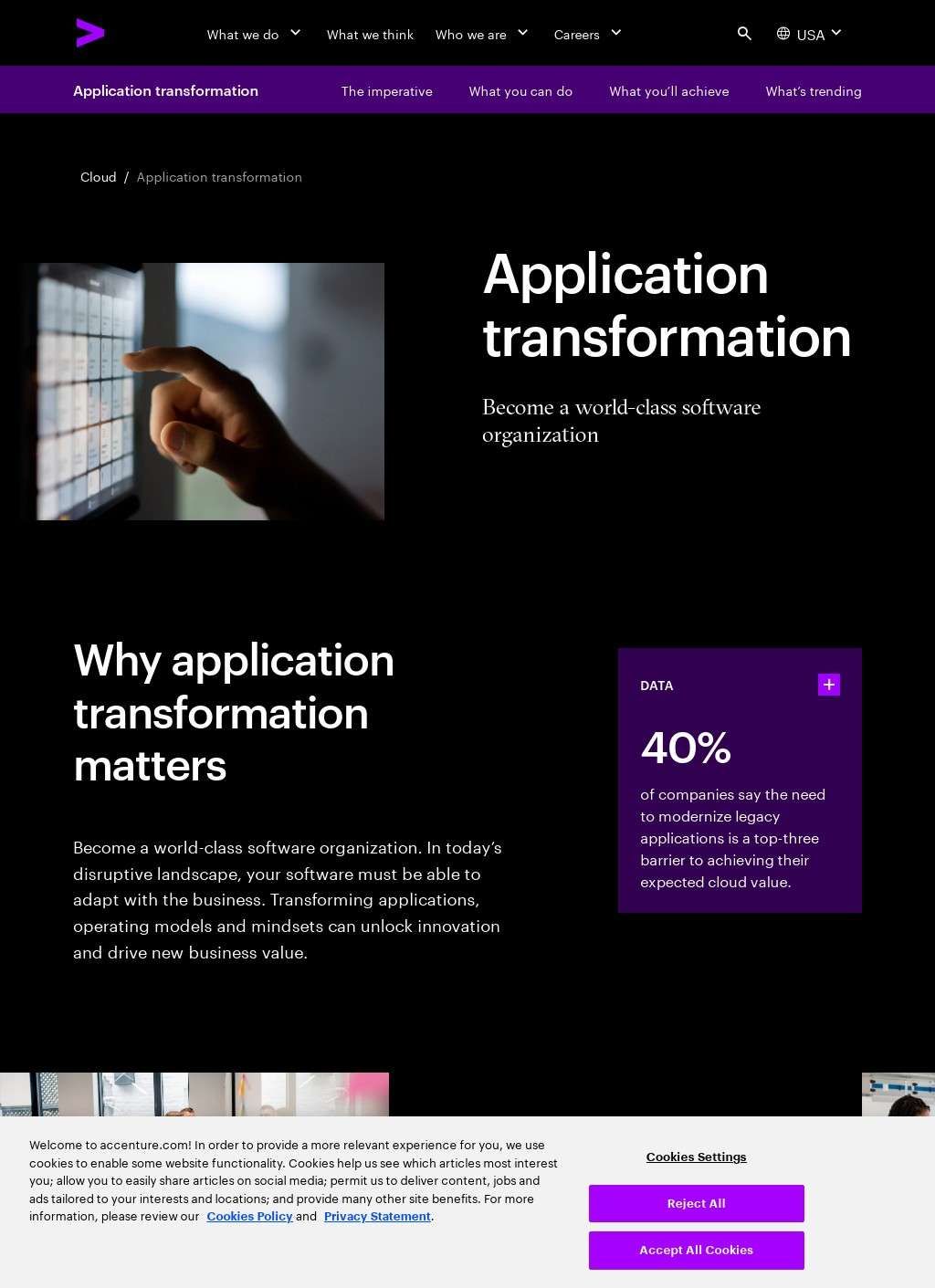Accenture Software Engineering Services operates as one of the world's largest and most comprehensive technology consulting organizations, specializing in transforming how businesses build, deploy, and manage software solutions. The company brings together over 350,000 professionals across multiple disciplines including software architects, developers, data scientists, and digital transformation specialists who collaborate to solve complex business challenges through innovative technology implementations. Accenture's approach combines deep industry expertise with cutting-edge engineering practices to help organizations modernize legacy systems, adopt cloud-native architectures, and accelerate digital transformation initiatives.
The platform's application transformation services address the critical challenge that many enterprises face with outdated software infrastructure that struggles to meet modern business demands. Research indicates that 40% of companies identify legacy application modernization as a primary barrier to achieving expected cloud value, while projections suggest that cloud-native applications will increase from 10% to 70% by 2024. Accenture's transformation methodology helps organizations navigate this transition through comprehensive strategies that encompass architecture planning, migration execution, and operational model redesign.
Custom software development capabilities enable organizations to create bespoke solutions that align precisely with unique business requirements and competitive differentiators. Accenture's engineering teams leverage modern programming languages, frameworks, and development methodologies including agile, DevOps, and continuous integration practices to deliver software that scales with business growth. The company's extensive partner network provides access to emerging technologies and platforms, ensuring clients can adopt innovative solutions that provide competitive advantages in their respective markets.
Platform engineering services help organizations build reusable, scalable technology foundations that support multiple applications and business functions simultaneously. This approach reduces development complexity while improving consistency, security, and maintainability across the software portfolio. Accenture's platform-centric methodology enables companies to assemble and launch new services quickly, reuse proven models across the enterprise, and scale operations more efficiently than traditional point-solution approaches.
The company's DevOps transformation expertise addresses the cultural and technical changes required to accelerate software delivery cycles while maintaining quality and security standards. Accenture implements comprehensive continuous integration and continuous delivery pipelines that automate testing, security scanning, and deployment processes. These transformations typically result in faster time-to-market, reduced operational overhead, and improved collaboration between development and operations teams.
Cloud-native development represents a significant focus area where Accenture helps organizations design applications specifically for cloud environments rather than simply migrating existing software. This approach enables better scalability, resilience, and cost optimization while taking advantage of cloud-specific services including serverless computing, managed databases, and artificial intelligence capabilities. The methodology includes microservices architecture design, containerization strategies, and distributed system patterns that support modern application requirements.
Quality engineering and testing services ensure software solutions meet rigorous standards for performance, security, and reliability before deployment to production environments. Accenture's testing methodology includes automated testing frameworks, security vulnerability assessments, and performance optimization that reduces post-deployment issues while accelerating development cycles. The company's quality-first approach helps organizations avoid costly fixes and reputation damage that can result from software defects.
Artificial intelligence and machine learning integration capabilities enable organizations to embed intelligent features into their software applications without requiring deep AI expertise from internal teams. Accenture's AI engineering services include natural language processing, computer vision, predictive analytics, and recommendation systems that enhance user experiences while providing business intelligence insights. The company's responsible AI practices ensure these implementations align with ethical guidelines and regulatory requirements.
Industry-specific solutions demonstrate Accenture's deep understanding of sector-specific challenges and regulations across healthcare, financial services, retail, manufacturing, and government markets. These specialized offerings combine proven software patterns with industry best practices to reduce implementation risk while ensuring compliance with relevant standards and regulations. The industry focus enables faster deployment and better alignment with business objectives compared to generic solutions.
The company's global delivery model provides clients with access to talent and expertise across multiple time zones and geographic regions while maintaining consistent quality standards and project management practices. This approach enables cost optimization through strategic resource allocation while ensuring cultural and language compatibility for international projects. Accenture's delivery centers provide specialized capabilities in emerging technologies while maintaining strong security and intellectual property protections.
Client engagement typically begins with comprehensive assessments that evaluate current software landscapes, identify modernization opportunities, and develop roadmaps for transformation initiatives. Accenture's consultants work closely with client teams to understand business objectives, technical constraints, and organizational culture before recommending specific approaches and technologies. This collaborative methodology ensures successful implementations that deliver measurable business value while building internal capabilities for ongoing success.
